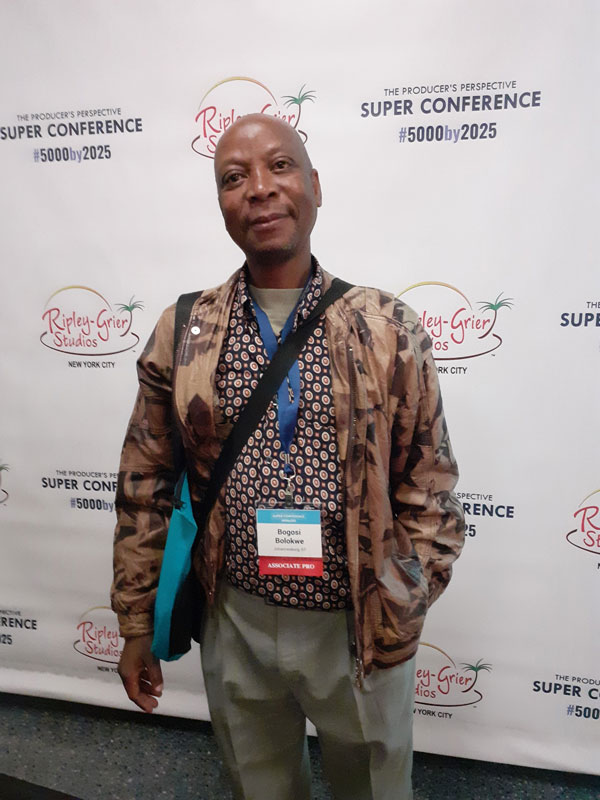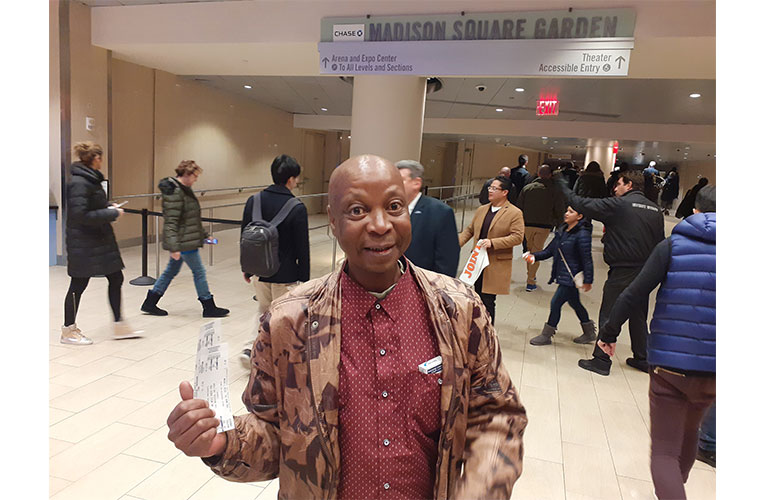Musical play Marangrang delves deep into Royal Family succession contest for power
Playwright Bogosi Bolokwe hopes that those who will attend his musical play Marangrang at Soweto Theatre February 4-6, 2022 will better understand what is currently going on within the Zulu family and within the ANC family.
BY Edward Tsumele, CITYLIFE/ARTS Editor
Sometime in 2021, I was invited to a rehearsal of a theatrical production by widely travelled and yet underrated playwright in South Africa Bogosi Kenneth Bolokwe at a venue deep in Alexandra township, near Sandton.
The production was in rehearsal in preparation to its season at Johannesburg Theatre. I was curious about the play, since it appeared to be a carbon copy of what was happening in real life at the time – the jostling for the powerful Zulu King Zwelithini’s throne by members of the royal family who felt that they were deserving of this very influential throne that comes complete with power over the 7 million South Africans under the jurisdiction of the King of amaZulu Nation who pay allegiance to the traditional leadership of the King, a tradition that goes back in centuries, as well as a health budget from the national government for the Royal Family. The throne was up for grabs after the death of King Zwelithini, a victim of Covid-19.

However Bolokwe’s musical play had nothing to do with the fight over the Zulu throne by its suitors. In fact Marangrang is about another Royal Family in a fictitious country called Batswanaland in the Northwest of South Africa. But the circumstances that precipitated the fight over the vacant throne after the death of this fictitious King of a Tswana clan were the same as those that triggered the fight over the Zulu in a a situation of art imitating life, or life imitating art.
But Bolokwe’s play was not inspired by what was happening within the Zulu Royal Family.
“In this play is among other script that I have written many years ago and kept them in my archives, and Marangrang was part of the package of these plays that I have shelved for years after writing them, including You Know What, which had a season at Soweto Theatre last year during the corona virus.
You know what is about a sensitive issue in South Africa that no one wants to talk about because of the increasing number of incidents of women abuse by men in the country, and that issue is the abuse of some men by women. I am not insensitive to the increasing abuse of women by women, but as I playwright I felt that it is also important to highlight the fact that there are also some men that get abused by women, and they remain in silence.
And just like Marangrang, that play is also quite prophetic as certain incidents of men being also abused by their partners have since been reported in the country, and there are in fact several such men who remain silent in the face of such abuse,” said Bolokwe during an interview with CITYLIFE/ARTS at a Johannesburg CBD based steakhouse, ahead of the season of Marangrang at Soweto Theatre on February 4 to February 6, 2022.
The way I see Marangrang within South African contemporary politics is that the musical cannot be divorced from the prevailing political environment of the contest for power within the Zulu nation as well as within the ruling African National Congress. In a way both these institutions, the Zulu Nation and the ANC are families which has factions fighting for political power, and so in a way this play was prophetic in as far as the factions of both the ANC and the Zulu Nation are concerned,” Bolokwe reflects.
Bolokwe is referring to the current contest for power by factions within the Zulu Nation , who current King’s position, King Misuzulu Zulu kaZwelithini’s position is being contested by others within the AmaZulu Royal family with a court case playing itself out currently as well as perceived factions supporting President Cyril Ramaphosa and those opposed to him, who belong to the Radical Economic Transformation (RET) faction loyal to former President Jacob Zuma. Zuma was replaced by Ramaphosa both as President of the ANC and the country following the Nasrec Conference of the ANC in 2017.
Back to Marangrang in Alexandra when I first saw the play in rehearsal, I reflected in a piece which was published in CITYLIFE/ARTS of after watching the rehearsal.
“First a group of 10 mainly young dancers come on stage, and they start the popular baTswana traditional dance routines. After them yet another group, this time made up of 10 couples come to the centre of the stage and again dance the traditional baTswana dance.
It is after this group that a lone character comes on stage and he starts relating the history of the baTswana, one of the ethnic groups mainly found in South and Bostwana.
As the narrator tells this story, it becomes clear that the name Tswana was coined centuries ago in its original version Bechuana , adopted by this group centuries ago. It is in reference to the fact that this distinct African group appeared to look the same with the same origin with regards to their ancestors, or so the= members of this group believed.

I am at a place called Candy Lifestyle Centre in Alexandra to watch the rehearsal of a new play, titled Marangrang, written and directed by playwright Bogosi Kenneth Bolokwe. Though I am the only audience, besides the director Bolokwe and his assistant and his wife, I found myself struggling to stop smiling at different points during the rehearsal of Marangrang, which in seTswana means chaos.
And indeed chaos happens in this fictitious village some donkey years ago, where a distinct African ethnic group cal is trying to create some form of identity, complete with leadership that is elected democratically at a communal meeting.

What happens here is that the Kgosi of the baTswana, after realizing that he is advanced in age, decides this is the right time to make successions plans while he is still alive. He gathers the community to get their counsel as to who among his two eligible sons should be the leader of this group of people after his death. Good move on the part of the chief, but there is one problem though, in fact many problems.
Among his nation, there is no agreement based on the nation’s consensus as to who between Marumo, whose mother is determined that he should succeed his father ahead of his half-brother, the son of the chief’s late first wife, who according to tradition of succession in this nation is the one who should take over, unless there is a serious problem with him such as suffering from mental health for example.
Another problem is that Marumo’s mother as the only surviving wife of the chief has so much influence with regards to the politics of succession, and she is so ambitious and determined to see to it that her son, Marumo becomes the chief and not Rantshope.
I am not going to spoil it for you to tell you the whole story as you will have to wait to watch the play at Joburg Theatre, on a date to be determined this May.
But for now let the playwright in his own words give you a bit of the gist of this interesting story of succession gone wrong that many will easily connect with in contemporary South Africa.

“I am a person who still believes and values traditional practices. Though there is a barrier for the love of local culture. The self hate is evident in black South Africans vas most don’t appreciate their culture and heritage. Traditional values are challenged and at worst discarded. This project aims to create a unique performance with its roots deeply embedded in local soils, accessible to people across the social spectrum. The ideal being to preserve, exhibit and promote our diverse cultures. If we allow it to be destroyed the very fabric of our society will disintegrate.
During my childhood, we had neither TVs nor access to the internet even computer games. The only source of entertainment was radio at certain times. But “maitisong” was our best as we would gather around the fire where the old men and old women kept our mouths open listening to the tales of myths, bravery of the ancient kings and wars that tore apart villages.
Marangrang is one of the stories that captured my mind since and would sincerely share it globally. Its layout still resembles the political arena existing today. The concept is imaginary and the names fictitious, yet it depicts the political greed of leaders on the continent.
The story is based on Bechuana tribe fighting for their rights and kingdom, dividing children of the same womb (Mother Africa).Where blood of the innocent blood often shed as in modern times. Expressing the African continent engulfed into wars due to dictators and politicians who are supposed to devote their lives to serve the needs of the people who put them into power, instead they succumb to visions of self grandeur. The typical African leader today clings to power at all costs, paving the way to greed and malpractice that harm people under their watch.
Political struggles in Africa are not a tale of only today. They have been active for centuries.
All characters’ names in the play are fictitious as we don’t want to harm any individual, political parties or tribes. Though the name Bechuana will be used to identify the tribe. The name Batswana is derived from Bechuana.
The setting is in an old village of Bechuana under the regime of Kgosi Kgodungwe. As kings are polygamist he had two wives. Each wife bearing a boy. The first wife Tumisang, her son Rantshope was the first born of the king. While Mmadira the second wife gave birth to a second boy Marumo. Unfortunately Tumisang passed on leaving Rantshope in his early 20s.

Then he was able to look after himself but under a watchful eye from his father and monitored by chieftains. But as the story unfolds it was discovered that Marumo was an adulterous child of the most trusted adviser of the King,” Bolokwe says about this play in his directors’ notes.
However at this stage, It is safe to say what unfolds of stage in the telling of this story of succession and the division it causes among the baTswana is captivating dance, spirited singing and good acting by a mainly young cast most of whom are drawn from the local community in Alexandra.
“We wanted to give young actors and dancers from Alexandra an opportunity to be in this musical. Who knows we might create stars out of some of them,” said Bolokwe.
Now back to the current iteration of Marangrang which theatre audiences will get to see from February 4 to February 6, 2022 at Soweto Theatre, Bolokwe he had this to say this week: “I have added new elements to the musical and I trust and hope that those who will attend the shows will be able to connect easily what is happening on stage to the current political environment and better understand what is going on within the ANC family and the Royal Zulu family currently,” Bolokwe told CITYLIFE/ARTS.
Besides writing, directing and producing plays, Bolokwe self-identifies himself as a philosopher.
.Marangrang is own at Soweto Theatre, February 4 – 6, 2022.










